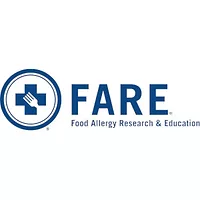The FASTER Act Passes the House and Picks Up Momentum in Congress

This year has been challenging in so many ways, including on Capitol Hill when it comes to ushering forward meaningful legislation. And, as the year winds down, one bill relating to food allergy research and the safety of the food supply chain has not fallen off the radar of decision makers in Washington. That bill is The Food Allergy Safety Treatment Education & Research Act of 2019—or the FASTER Act (H.R. 2117/S.3451).
FARE (Food Allergy Research & Education), the world’s leading nongovernmental organization engaged in food allergy advocacy and the largest private funder of food allergy research, has been hard at work ensuring that legislation relating to food allergy research and the safety of the food supply chain continues to be put in front of legislators, and that includes the FASTER Act.
Consider the following realities when it comes to food allergies in America:
• More than 32 million people suffer with food allergies yet there is just one U.S. Food and Drug Administration (FDA)-approved treatment, and it only helps those with peanut allergy.
• According to a recent journal of the American Medical Association Network Open study, more than 1.5 million Americans are allergic to sesame, yet it is not currently regulated by the Food Allergen Labeling and Consumer Protection Act, the primary federal law overseeing how allergens are displayed on packaged foods.
• The federal government spends just 19 cents per person on food allergy research.
The FASTER Act is the first step to changing this. The bill updates allergen labeling laws to include sesame, making it the ninth top allergen joining the FDA’s official list that also includes peanut, tree nut, wheat, eggs, dairy, shellfish, fin fish, and soy. It also requires the federal government to analyze the most promising research opportunities to help scientists develop more effective treatments and, ultimately, a cure for food allergies.
Introduced in 2019 by Representative Doris Matsui (CA-06), and passed by the U.S. House of Representatives in November, the FASTER Act is the first meaningful food allergy legislation at the federal level in more than a decade, and will go a long way to improving the safety of those in the food allergy community and expanding the research necessary to find new treatments.
“Individuals and families with food allergies are resilient, and I have long been inspired by their courage to navigate life’s challenges,” said Rep. Matsui. “That’s why I have been working for the past year with FARE to improve the quality of life for the more than 1.5 million Americans allergic to sesame and support the more than 32 million Americans affected by life-threatening food allergies.”
In March, FARE brought 150 food allergy advocates to Capitol Hill for meetings with members of Congress, urging them to support and pass the FASTER Act. Just days after FARE’s advocacy meetings on Capitol Hill, the bill which has now surpassed 90 cosponsors in the House, was also introduced in the U.S. Senate (S. 3451).
“We are so proud to see the FASTER Act passed by the House and moving forward in Congress,” said Lisa Gable, chief executive officer for FARE. “This is especially noteworthy in the Senate where even over the last few tumultuous months as attention has been on providing economic relief for businesses and individuals adversely impacted by COVID-19, the bill continues to see additional cosponsors and looks to maintain its momentum before year’s end.”
The bill is likely to be reintroduced in both the House by Representative Matsui and in the Senate by senators Tim Scott (R-SC) and Chris Murphy (D-CT) during the first 100 days of the 117th Session of Congress. It is also expected that the new Food Allergy Research Caucus, dedicated to increasing federal funding for additional food allergy research, will be unveiled in House in early 2021 co-chaired by representatives Doris Matsui (D-CA-06) and Patrick McHenry (R-NC-10).
Legislation, like the FASTER Act which puts food allergy research and food safety front and center, means we are that much closer to a day when patients can more easily know that what is in their food is safe and can more readily get a reliable diagnosis. We continue to work towards this day and, of course, towards the day when there is a cure.
Looking for quick answers on food safety topics?
Try Ask FSM, our new smart AI search tool.
Ask FSM →








